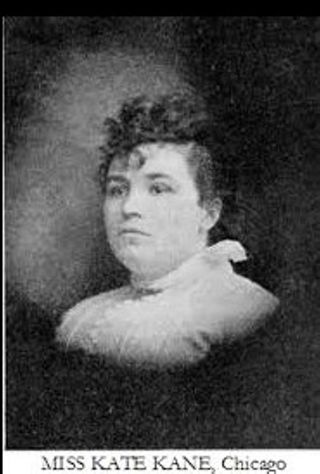From collection Candidates

Kate Kane Rossi practiced law first in Wisconsin and later in Chicago where she was a successful criminal defense attorney. She ran for various elective offices, particularly judicial positions, in Milwaukee and Chicago from the 1880s into the twentieth century. In 1893, Rossi was not officially nominated for the office and had to collect the signatures required to be listed on the ballot. She was ultimately eliminated from the race on the grounds that she did not have signatures from the required two percent of registered Cook County voters. Newspapers around the country covered her campaign as a way of discussing women's political status. Many of her efforts were blocked by male officials who said women could not legally run for public office. She never won election but used her campaigns to speak on behalf of women's rights and social and criminal law issues. In 1911 Rossi attempted to become chief of police in Chicago but was not successful. Kate Kane began a law school education in 1877 at the University of Michigan but left after one year to apprentice in the law office of Pliny Norcross and A.A. Jackson in Janesville Wisconsin. One biographer speculates she made this decision after learning that Lavinia Goodell had just been admitted to the Janesville bar. Kane joined the bar at Janesville and soon thereafter in Milwaukee, in 1878 becoming that city's first woman lawyer. She moved her law practice to Chicago in 1883. She gained a reputation as smart, militant, and hot-tempered. She was also a paid lecturer: "Legislation for the Poor Man" was one of her popular talks. In 1890, the controversial religious skeptic and attorney Robert G. Ingersoll sponsored her for admission to the U.S. Supreme Court bar which put her in the company of other pioneering woman attorneys, including Belva Lockwood. It is thought that she worked with Esther Dunshee Bower and attorney Catherine Waugh McCulloch to win passage of state legislation giving Illinois women the right to serve on juries. She lobbied in Wisconsin and, later, Illinois to have matrons appointed to look after women prisoners at police stations. She also argued that women with children should be provided with child care when using courts. She married Vincenzo Rossi (date of marriage unknown but probably in the 1890s).






